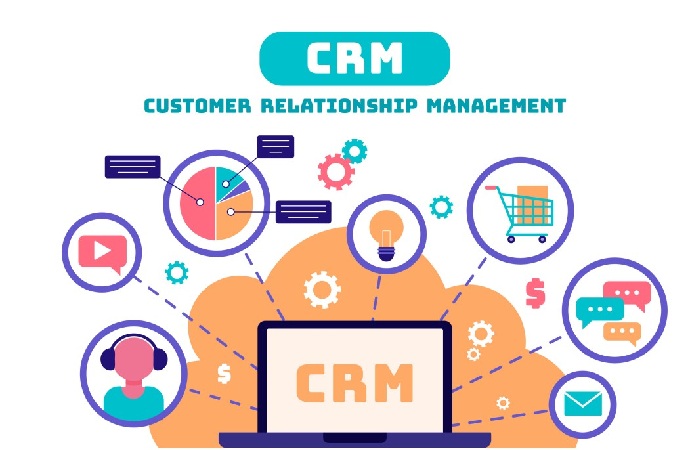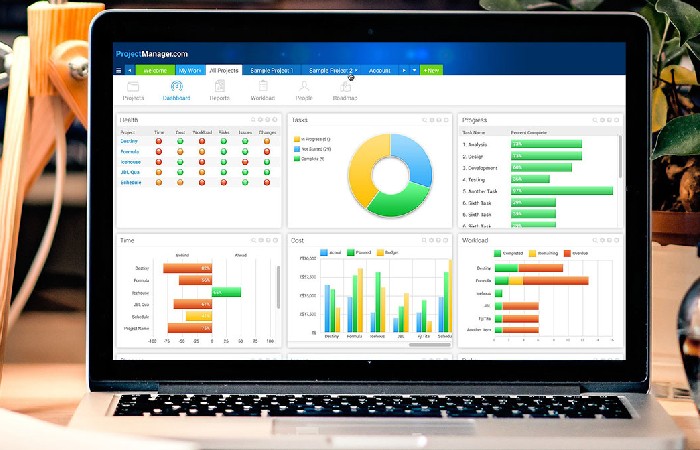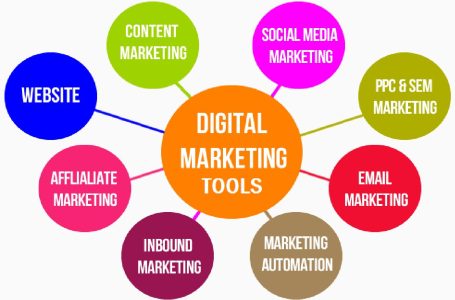Management software is widely used across industries and business functions to streamline operations, improve efficiency, and enhance decision-making. Here are some common types of management software and their key benefits
Introduction

In today’s fast-paced and technologically-driven world, management software plays a crucial role in streamlining operations, enhancing productivity, and improving decision-making across diverse industries. From project management to customer relationship management, inventory control, and human resources. Different types of management software caters to specific needs and provide businesses with the tools they need to succeed.
Project Management Software
It helps businesses plan, organize, and track projects from start to finish. It enables teams to set goals, allocate resources, manage tasks, track progress, and collaborate effectively. Benefits include improved project visibility, enhanced communication, and increased efficiency in project delivery.
Software such as Trello, Asana, and Jira is widely used in the construction, IT, marketing, and manufacturing industries. These tools help teams plan, organize, and track projects, allocate resources, set deadlines, and facilitate collaboration, ensuring projects are completed on time and within budget.
Customer Relationship Management Software

CRM software helps businesses manage customer interactions, sales processes, and data. It enables companies to track leads, manage sales pipelines, provide personalized customer service, and analyze customer behavior. Benefits include improved customer satisfaction, increased sales productivity, and enhanced customer retention.
Such as Salesforce, HubSpot CRM, and Zoho CRM, is essential for businesses across industries to manage customer relationships effectively. It enables businesses to track customer interactions, manage sales pipelines, automate marketing campaigns, and provide personalized customer experiences, improving customer satisfaction and increasing sales.
Inventory Management Software
Inventory management software allows businesses to track and manage inventory levels, streamline purchasing processes, and optimize inventory control. It helps businesses prevent stockouts, reduce carrying costs, and improve order fulfillment. Benefits include improved inventory accuracy, efficient demand planning, and cost savings.
It is like QuickBooks Enterprise, Fishbowl, and Cin7, is vital for industries with complex inventory needs. Such as retail, manufacturing, and distribution. It helps businesses track inventory levels, manage stock movements, automate purchasing and reordering, and optimize inventory control, minimizing stockouts and reducing carrying costs.
Human Resources Management (HRM) Software
HRM software streamlines human resource processes, including recruitment, employee data management, performance tracking, and payroll. It helps automate administrative tasks, track employee information, manage benefits, and ensure compliance with regulations. Benefits include improved HR efficiency, accurate record-keeping, and enhanced employee engagement.
HRM software, such as BambooHR, ADP, and Workday, assists HR departments in managing employee data, payroll, benefits administration, time and attendance tracking, performance management, and recruitment. In addition, it simplifies HR processes, ensures compliance with regulations, and improves employee engagement and satisfaction.
Financial Management Software
It assists businesses in managing their financial operations, including accounting, budgeting, invoicing, and financial reporting. It provides real-time insights into financial performance, streamlines financial processes, and facilitates accurate financial planning. Benefits include improved financial visibility, reduced manual errors, and enhanced decision-making.
Financial management software, such as QuickBooks, Xero, and NetSuite, is crucial for businesses to handle their accounting and financial operations efficiently. It helps with tasks like bookkeeping, invoicing, expense tracking, financial reporting, and tax management, providing accurate financial insights and facilitating strategic decision-making.

Supply Chain Management (SCM) Software
SCM software helps businesses optimize their supply chain processes, including procurement, inventory management, demand forecasting, and logistics. It enables enterprises to streamline supply chain operations, reduce costs, improve order fulfillment, and enhance supplier collaboration. Benefits include improved supply chain visibility, reduced lead times, and increased operational efficiency.
SCM software, such as SAP, Oracle SCM, and Blue Yonder (formerly JDA Software), is essential for industries with complex supply chains, including manufacturing, retail, and logistics. It optimizes supply chain processes, including procurement, demand planning, inventory management, and logistics, improving efficiency, reducing costs, and enhancing customer satisfaction.
Enterprise Resource Planning (ERP) Software
ERP software, such as SAP S/4HANA, Oracle ERP Cloud, and Microsoft Dynamics 365, integrates various business functions like finance, HR, manufacturing, and supply chain into a single system. It provides a comprehensive view of business operations, streamlines processes, improves data accuracy, and enables efficient resource management across the organization.
Facility Management Software
Facility management software, such as IBM TRIRIGA, FMX, and ServiceChannel, is used in real estate, healthcare, and hospitality industries to manage and maintain physical facilities. It helps with asset tracking, work order management, preventive maintenance scheduling, and space utilization, ensuring optimal facility performance and cost efficiency.
Document Management Software
It allows businesses to digitize, store, organize, and retrieve documents securely. It helps companies to streamline document workflows, improve collaboration, and ensure version control. Benefits include reduced paperwork, enhanced document security, and improved access to information.
Business Intelligence (BI) Software
BI software enables businesses to analyze and visualize data, helping them make informed decisions. It consolidates data from multiple sources, provides dashboards and reports, and facilitates data-driven insights. Benefits include improved data analysis, business performance, and strategic planning.
Overall, management software solutions provide businesses with the tools and capabilities to streamline operations, improve productivity, and make data-driven decisions. By leveraging these software solutions, businesses can gain a competitive edge, enhance customer satisfaction, and drive growth in their respective industries.
Conclusion
It is pivotal in modern business operations, enabling organizations to streamline processes, enhance productivity, and make informed decisions. From project management to customer relationship management, inventory control to human resources, financial management to supply chain management.
The different types of management software discussed in this essay cater to specific needs across various fields. By leveraging these software solutions effectively, businesses can gain a competitive edge, improve operational efficiency, and drive growth.





